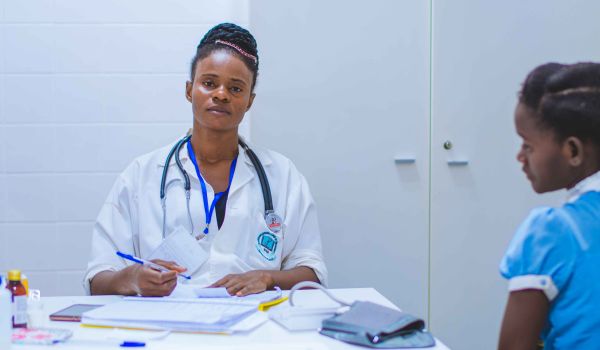Last Thursday, Nathan Darity was recruiting students at Milliones University Preparatory School, in Pittsburgh’s historic Hill District. Once a center of Jazz and African-American life in the western Pennsylvania city, the neighborhood has seen decades of poverty, disinvestment and displacement.
Darity is the community engagement coordinator for Amizade (pronounced ah-mee-zha-jee, the Portuguese word for friendship), a Pittsburgh-based global service organization that’s aiming to be an asset to youth in black and low-income communities in its own backyard, starting with students in the Hill District.
“It’s one of Pittsburgh’s lowest-performing academic schools and lowest-resourced schools,” says Darity, who lives in the Hill District, of the prep school. Amizade’s office is not far away, in the Polish Hill neighborhood.
In its 22 years, Amizade has facilitated the service and learning of over 8,000 volunteers from all over the world. They’ve traveled to over a dozen countries — building community centers in Bolivia, supporting sustainable agriculture in Tanzania, teaching in schools in Ghana and more.
A few years ago, Amizade moved toward what they call fair trade learning, ensuring that host communities are treated as full partners. Host community members can attend classes and presentations organized as part of the volunteer trips. Local guides, drivers, homestay families, cooks and community organizations also receive fair compensation. Amizade also helps individuals from host communities engage in service learning programs in the United States. So far, they’ve brought visitors to Pittsburgh’s Hill District from Bolivia, Brazil, Peru, Kenya and Northern Ireland.
Not long after, Amizade’s host partners in the Hill District started to ask about local youth gaining access to global service learning opportunities, and Amizade took a group of 10 Hill District youth to their site in Northern Ireland last year. The results were promising.
Many benefits have been linked to such global service trips: Past participants show higher levels of commitment to classwork and goal-setting, and as adults later on, to voting and volunteering. There’s even evidence that service learning can help reduce the low-income achievement gap.
Amizade wants to take more Pittsburgh students abroad for service, but in seeking to scale up, they’ve recognized a specific shortcoming: Their staff, and most past volunteers, are white.
So Darity went to Milliones University Prep to recruit students in the majority-black neighborhood to co-design a global engagement program on their terms.
“It’s truly an action born of an acknowledgement that we are a mostly white staff, intending to work with a mostly African-American school,” Darity says. “We want to know what translates and what doesn’t translate, in the pursuit of creating a world where movement and access, opportunity and adventure, delight, are equitably distributed.”
Brandon Blache-Cohen, Amizade’s executive director, echoes the equity goals: “This is … a justice issue. If you grow up in some neighborhoods and some schools, having an experience like [an Amizade service trip] is a part of your education, part of your resume, makes you more employable.”
Sixty students signed up with Darity last week. While funding issues still need to be worked out, he says they wanted to start with youth input.
“It may be that the outcome of this is a program in which students travel, but it’s quite possible that the particular brand of global engagement that this group of students is interested in is not travel based. We have no idea,” Darity says. “Service learning has meant a hundred different things to us over the last 22 years.”
The co-design journey begins Friday, when Darity returns to Milliones University Prep for the first sessions with students.
The Equity Factor is made possible with the support of the Surdna Foundation.

Oscar is Next City's senior economic justice correspondent. He previously served as Next City’s editor from 2018-2019, and was a Next City Equitable Cities Fellow from 2015-2016. Since 2011, Oscar has covered community development finance, community banking, impact investing, economic development, housing and more for media outlets such as Shelterforce, B Magazine, Impact Alpha and Fast Company.
Follow Oscar .(JavaScript must be enabled to view this email address)

















